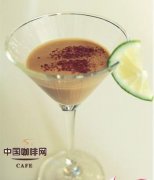Professional knowledge of coffee boutique coffee science

Coffee tasting is a very professional knowledge, there are many terms, too numerous to list. Here we list some of the simplest and most commonly used, which will come in handy if you have a chance to read professional books on coffee in the future.
Flavor (flavor): is the overall impression of aroma, acidity and mellowness, which can be used to describe the overall feeling of a certain kind of coffee. For example, this coffee has a unique flavor, or this coffee has a chocolate flavor.
Acidity (acidity): it is the acidity and strong taste common to all coffee grown in high places. Unlike bitter or sour (sour), it has nothing to do with pH.
Body (mellowness): the taste of brewed coffee after drinking. The change of mellowness can be as light as water to light, medium, high, fat, and even some Indonesian coffee is as thick as syrup. Other reference adjectives include Bland-coffee grown in lowlands usually tastes light; coffee powder is insufficient and coffee with too much water can have the same light effect.
Aroma: the smell and aroma of brewed coffee. The words used to describe Aroma include caramel, charcoal, chocolate, fruit, grass, malt, rich, rich, spicy and so on.
Soft: often used to describe the mild taste of low-acidity coffee.
Spicy: refers to a flavor or smell reminiscent of a particular spice. For example, some Indonesian plateau coffee (especially old coffee) has a cardamom smell, while Guatemala Antigua coffee has a pepper-like spice, which can be described by the word spicy.
Wild: describe coffee as having extreme taste characteristics that remind you of the vast highlands of Africa.
Sweet: it is a commonly used adjective to describe coffee without sharp flavor.
Strong (strong): in terms of popular usage, strong describes the strong flavor of deep-roasted coffee.
Tangy (Xinlie): similar to the sour taste of fermentation, it is almost like fruit in nature, and has something to do with the taste of the wine. Coffee grown in Costa Rica usually has a pungent flavor.
Winy (wine taste): describes a charming taste reminiscent of wine, with fruit-like acidity and smooth mellowness. Kenyan coffee is the best example of wine flavor.
Sour (sour): this taste can only be produced on the back of the tongue, which is characteristic of lightly roasted coffee.
Briny: after brewing, if the coffee is overheated, it will produce a salty taste.
Bitter (bitterness): bitterness is a basic sense of taste, and it is also the usual taste of coffee. The bitterness of deep-roasted coffee is deliberately created, but if the coffee is particularly bitter, it may be due to the excessive use of coffee powder.
Exotic (uniqueness): describes coffee with its unique aroma and special flavor, such as flowers, fruits and spices.
Mild (mild): indicates that some kind of coffee has a harmonious and delicate flavor. Latin American premium coffee grown on the plateau is usually described as mild in texture. In addition, it is also a coffee term used to refer to all plateau coffee except those produced in Brazil.
Earthy (earthy aroma): usually used to describe coffee that is spicy and earthy. Sometimes people say it is a kind of earthy smell. But the word is not derogatory, dried coffee beans usually have this flavor, and it is precisely the special taste that many people pursue.
Mellow (aromatic alcohol): an adjective for coffee with low to medium acidity and good balance.
Important Notice :
前街咖啡 FrontStreet Coffee has moved to new addredd:
FrontStreet Coffee Address: 315,Donghua East Road,GuangZhou
Tel:020 38364473
- Prev

Come to the black cup of coffee early in the morning. All kinds of black coffee taste low in sugar and calories.
Wake yourself up with a can of coffee in the morning black coffee without any modification, fully showing the original rough feeling of coffee beans, bitter and mellow taste. But the bitter and sour taste of black coffee is not easily accepted by most people. Kobe residence Black Coffee 1. Kobe residence Black Coffee Coffee has an obvious flavor without any sugar.
- Next

Coffee fundamentals New-age- New era Coffee
New-age- New Age Coffee New age (New Age Coffee) is full of international flavor, it will cool espresso, an ice cream ball, orange peel wine and the right amount of vodka, then decorated with sweet chocolate chips. The naked wheat-colored drink is fragrant and drunk before it is tasted. These 2011 illy's latest summer coffee ice products will be in Shanghai in mid-June.
Related
- Beginners will see the "Coffee pull flower" guide!
- What is the difference between ice blog purified milk and ordinary milk coffee?
- Why is the Philippines the largest producer of crops in Liberia?
- For coffee extraction, should the fine powder be retained?
- How does extracted espresso fill pressed powder? How much strength does it take to press the powder?
- How to make jasmine cold extract coffee? Is the jasmine + latte good?
- Will this little toy really make the coffee taste better? How does Lily Drip affect coffee extraction?
- Will the action of slapping the filter cup also affect coffee extraction?
- What's the difference between powder-to-water ratio and powder-to-liquid ratio?
- What is the Ethiopian local species? What does it have to do with Heirloom native species?

